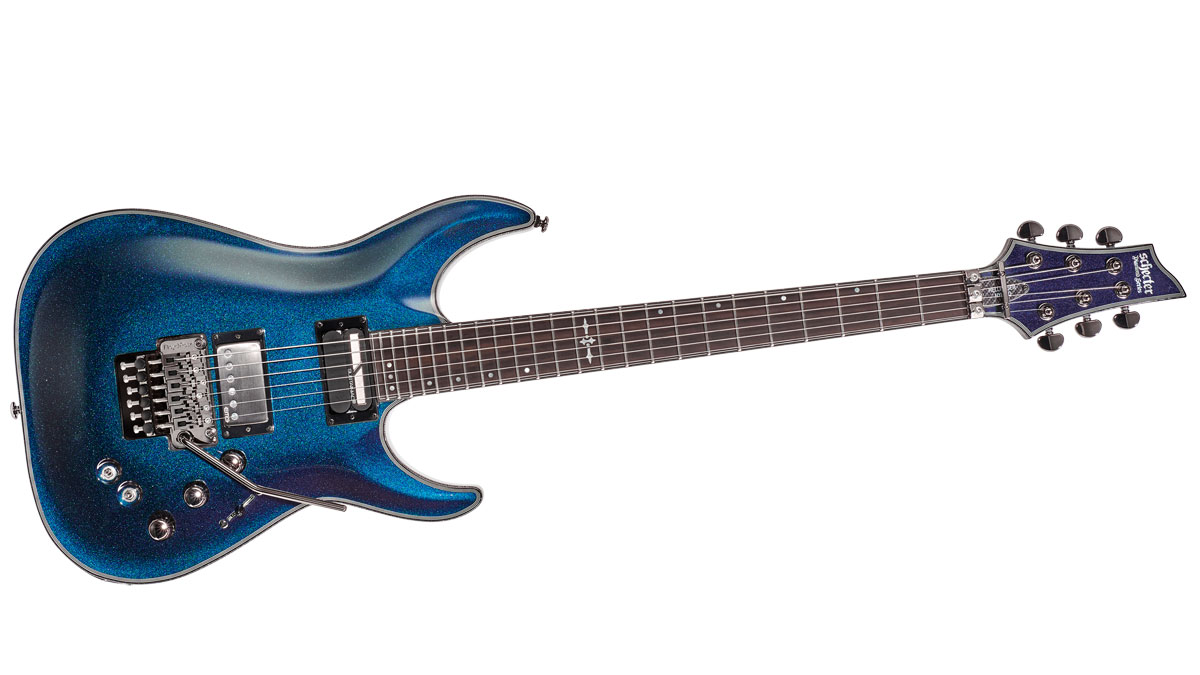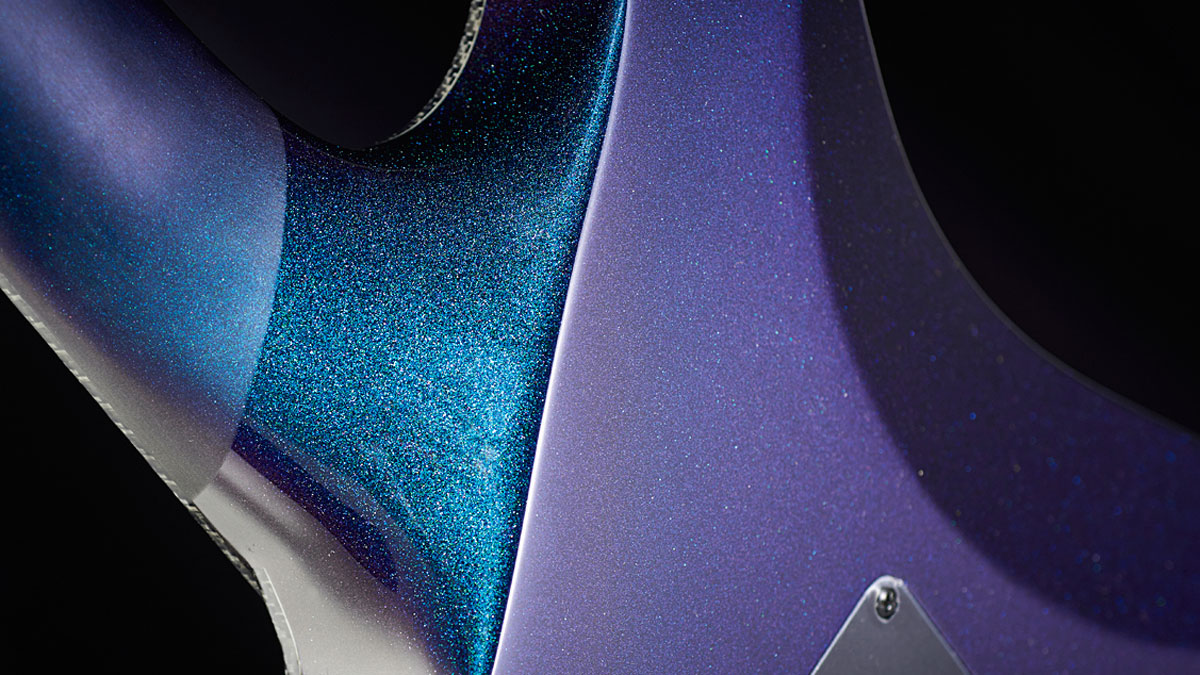MusicRadar Verdict
It isn't a cheap date, of course, but if you're serious about your craft, it won't let you down.
Pros
- +
Build and finish quality; loaded with features.
Cons
- -
No case. Possible hard-to-cure addiction to that Sustainiac!
MusicRadar's got your back

Schecter Hellraiser Hybrid C-1 FR S

Schecter Hellraiser Hybrid C-1 FR S
The California workshop of Schecter Guitar Research was the first port of call for quality replacement parts back in the mid-70s, and a few short years later, complete Schecter-branded guitars were being used by the likes of Pete Townshend, Mark Knopfler and Ritchie Blackmore.
Since the late 1990s, Schecter's Diamond Series guitars have been built in Korea, then shipped back 'home' to the US for a full setup.
The new Hellraiser Hybrid series guitars borrow some of the more sought-after features from the popular Hellraiser and SLS ranges (hence the 'Hybrid' name), such as the SLS's ultra-slim neck. Our review guitar has a mahogany body, with arched maple top and is flawlessly finished. The C-1 looks particularly stunning in its Ultra Violet finish that, says Schecter, is "a chameleon paint that shifts from blue to green and purple". We'd agree.
The 'Ultra Thin C' profile neck is made from a three-piece maple laminate for strength, with 'Ultra Access' low profile glued-neck-to-body joints and a two-way adjustable truss rod. A particularly nice touch is the satin finish, stylishly cut in at an angle at the body and head end of the neck. A small volute strengthens the construction at the thinnest point of the neck - and here you'll also find a decal with the serial number and country of manufacture.
Flipping it over, this guitar has glow-in-the-dark position side markers set into multi-ply carbon fibre binding, possibly a very useful feature when launching into a blistering guitar intro on a dark stage... The fingerboard is ebony - with 24 jumbo frets and small offset dot inlays, featuring a gothic cross at the 12th fret - and employ a compound radius, starting out with a Gibson-like 305mm (12 inches) camber at the 1st fret, ideal for comfortable chord work, that gradually flattens out to 406mm (16 inches) for choke-free string bends in the higher reaches of the 'board. As for hardware, we get black chrome 'kidney button' tuners.
Playing driven powerchords and solos, it's virtually indistinguishable from the experience of playing through a cranked amp, but without the risk of tinnitus or imminent arrest!
An active EMG 57 humbucker, housed with a brushed black chrome cover, graces the bridge position of the guitar.
Although the C-1 features master volume and tone controls, pickup selection is with a Fender-style three-way lever selector. Above these are two micro switches and what we later discover is called an 'Intensity' control. These govern the onboard Sustainiac system that features a special combined 'string driver transducer' in the neck position. As a result of these extras, we have two battery compartments situated on the rear of the guitar.
Feel & Sounds
The C-1 FR S's mids appear more 'scooped' as we raise the volume, but not excessively so by any means. The Floyd, pickup selector and basic controls all work predictably and well, but the real adventure begins when we flick on the uppermost mini switch that activates the Sustainiac unit. This works in all pickup positions by stimulating the strings into constant movement - like a feedback loop - and when switched out, the Sustainiac unit acts as a regular neck humbucker.
The lower mini-switch offers three modes of operation: fundamental, mix and harmonic mode, which usually adds a 5th or octave above depending on where you are on the fretboard and/or relative to the speaker. The feedbacking results are shockingly authentic.
Playing driven powerchords and solos, it's virtually indistinguishable from the experience of playing through a cranked amp, but without the risk of tinnitus or imminent arrest! The mix mode allows the fundamental note to sound, but adds in even higher harmonic content for ultra screaming but controlled feedback.
The Intensity control (third in line with the master volume and tone) operates just as its name implies and is particularly useful for fine-tuning this mode, especially as you get used to using the effect. Turning the gain down, it's possible to simulate some lovely pedal-steel type effects, too. Fun? Definitely.
Its amazing to us that you don't see the Sustainiac system on more production guitars; it really is a fantastic (though hardly new) invention. That aside, the build quality is utterly faultless, like the playability.
“Chinese Democracy was a boring record. But calling it Guns N' Roses was not honest. It was totally a solo record”: GN’R’s ex manager takes aim at Axl Rose
“Instead of labouring over a perfect recreation, we decided to make an expanded counterpart”: Chase Bliss teams up with Mike Piera for Analog Man collab based on the legendary King Of Tone
“It’s about delivering the most in-demand mods straight from the factory”: Fender hot-rods itself as the Player II Modified Series rolls out the upgrades – and it got IDLES to demo them









